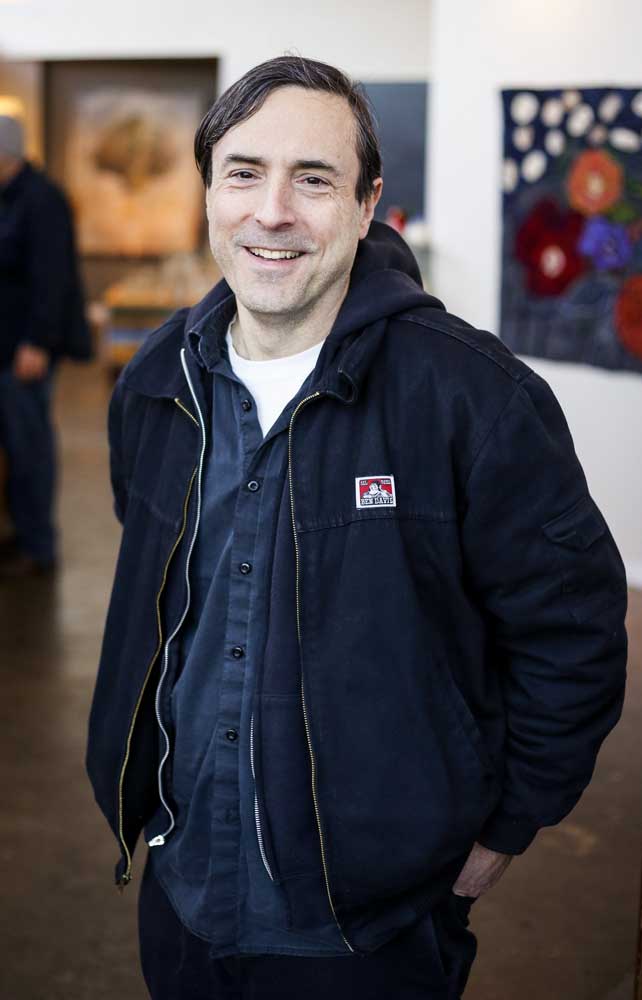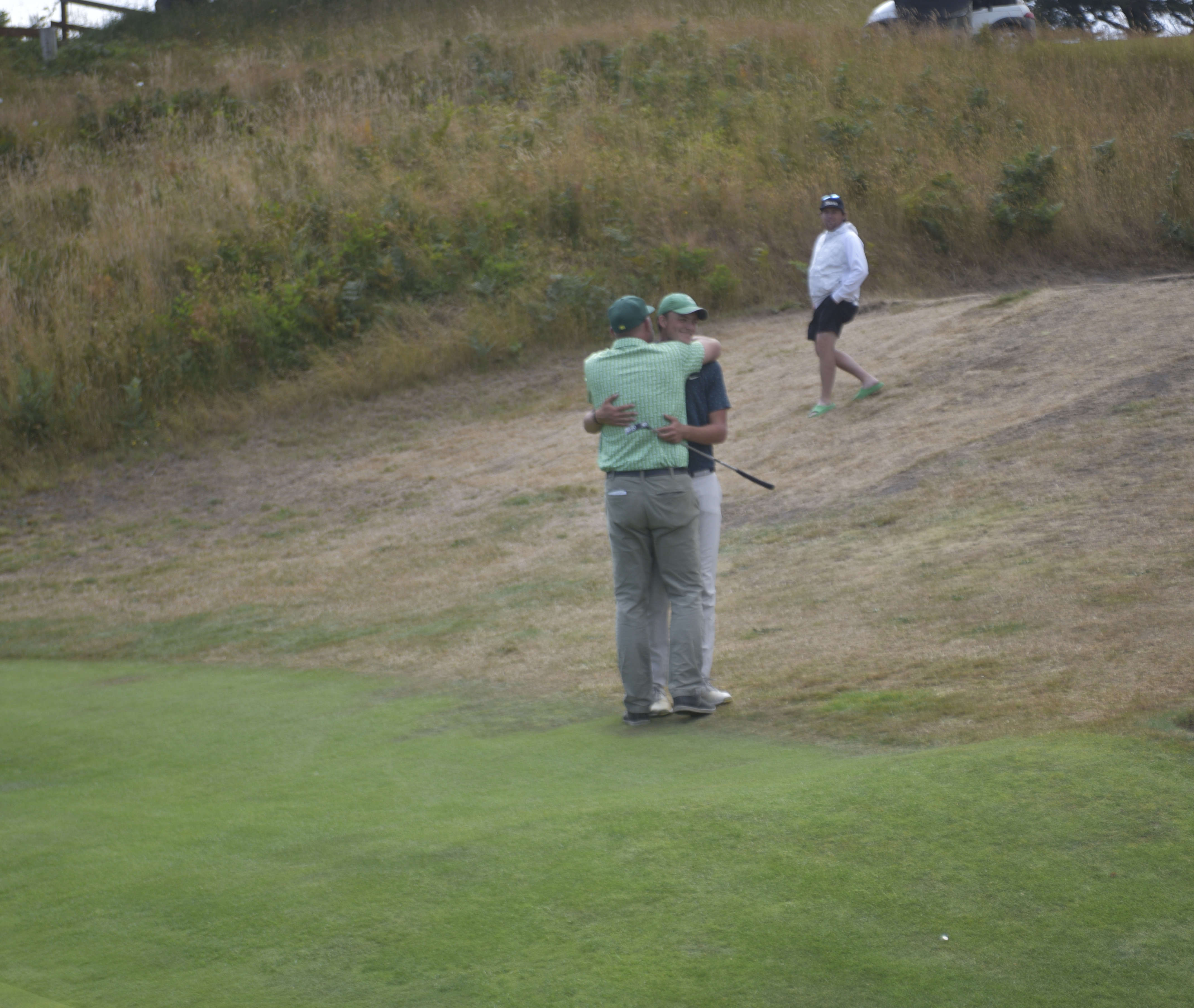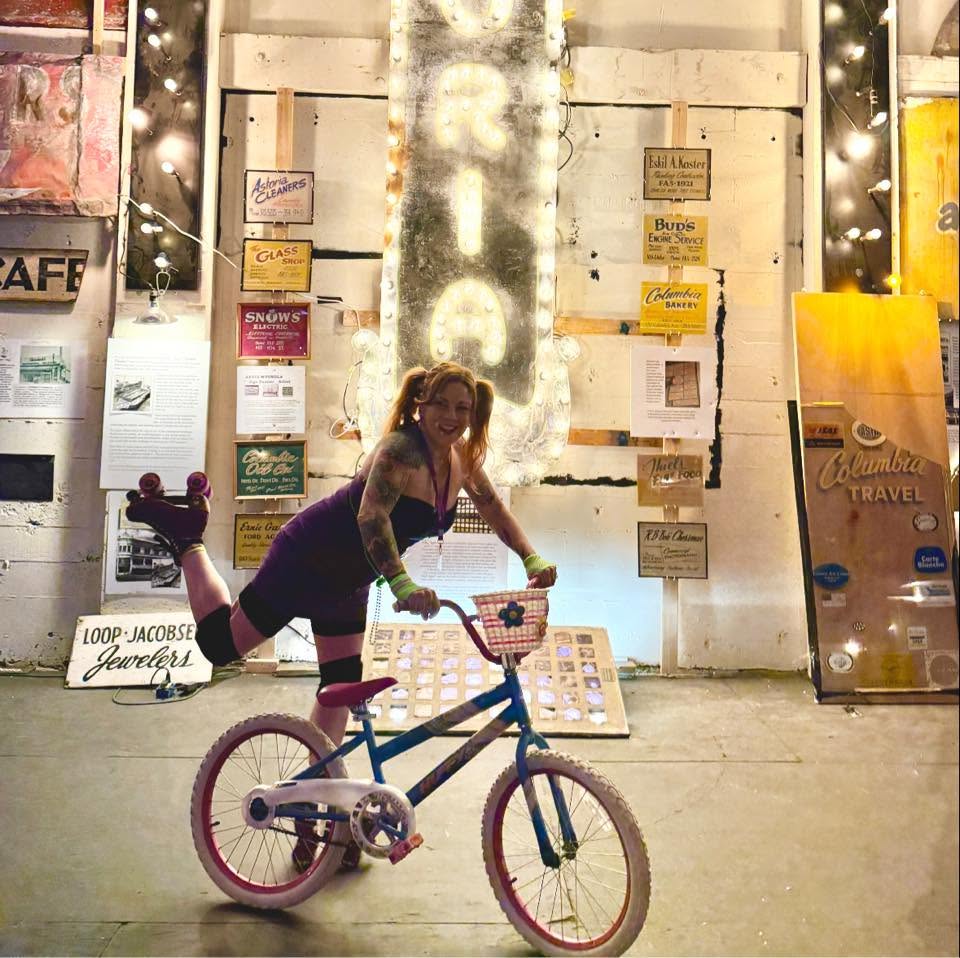Hayes embraces oddballs, eccentrics
Published 2:44 am Monday, January 4, 2016

- Roger Hayes at the Imogen Gallery.
Roger Hayes, an Astoria artist and professional counselor, has always had a soft spot for savants, eccentrics and outsiders — the people dismissed in society as offbeat or “crazy.”
Trending
For more than a decade, he worked with mental health clients at Clatsop Behavioral Healthcare, where he routinely encountered the peculiar perceptions of people whose thoughts and utterances don’t match the mainstream.
“That is a form of expression, so I’ve always kind of preferred that,” said the 53-year-old Hayes, who often arranged exhibitions for his clients. “Doing art with people is very therapeutic.”
Artistically, Hayes is drawn to art brut, an offshoot of surrealism that denotes the raw, roughly hewn work of self-taught talents operating outside of the establishment art scene. Practitioners have included patients from psychiatric institutions — artists whose work looks untrained, yes, but also utterly unconventional.
Trending
“It’s kind of just pure expression,” said Hayes, a largely self-taught painter. “I feel like my art is a little unschooled … I think it’s well-informed, but it has this unschooled aspect to it.”
On Jan. 9, Hayes and his wife, Sally Lackaff, will premiere a joint exhibition at Astoria’s Imogen Gallery. Titled “Clatsop County Waters,” the show focuses on the county’s bodies of water, rendered in Hayes’ acrylic work and Lackaff’s multimedia assemblages of watercolor paintings and art composed of glass, wood and fiber work.
Their pieces depict the play of lightness and darkness on water — for example, the colors created when the sunset meets the Columbia River, a vision that in real life is “like a light show,” he said.
Originally from Detroit, Hayes took up abstract drawing at around 3 years old, learned to illustrate real things at 7 and began copying expressionists like Max Beckmann, a German artist, at 15. Expressionism — a modernist movement that elevates emotional intensity over literal representation — became his comfort zone.
“That’s where I learned painting,” he said.
Some years after attending the Center for Creative Studies in Detroit, Hayes received a $4,000 grant in 1986 to produce between 40 and 50 paintings for an exhibition in Lansing. Over the decades, he has had about 10 solo shows and been part of about 50 group shows, some as far away as Paris and Lausanne, Switzerland.
Hayes is pretty egalitarian in his sources of inspiration: Nature fills him with awe, sure, but so does pop art. From the mighty Columbia to underground comic books, highbrow to lowbrow, all is fair game.
His subjects have evolved drastically, encompassing portraits and human figures, abstract art and radical left-wing protest art. Lately, he has moved into painting imitations of “glitch art,” which transforms distortions in digital and analogue data into things of beauty.
Meanwhile, he’s recorded around 10 albums of electronic music. “It’s all pretty experimental,” he said. “The whole process is the goal.”
And there’s a lot of creative overlap between his music and his visual art.
“At some point I convinced myself that art and music aren’t exclusive; they’re very cross-informative,” he said.
Think of compositions by Mahler or Shostakovich, how rapturous and evocative they are, and how they inspire imagery, “Fantasia”-style, that belongs on canvas.
“I really kind of tried to delve into that. And now, these days, I think everybody does it,” he said.
At Clatsop Behavioral Healthcare — where Hayes has served the community since 2000 — he recently switched from counseling mental health clients to individuals recovering from drug and alcohol dependency.
Many of his clients are otherwise upstanding citizens just trying to turn their lives around, some seeking treatment on their own. But there are the tougher cases, the people with post-traumatic stress disorder, the people on parole or probation, the sex offenders.
Having a full-time office job — with reports to write and rules and routines to follow — has given his life some balance, he said.
“I think it’s been good for me. I think I’m a little too loosey-goosey in the way I approach stuff,” he said. “It helps to have to think in a very organized way sometimes.”









